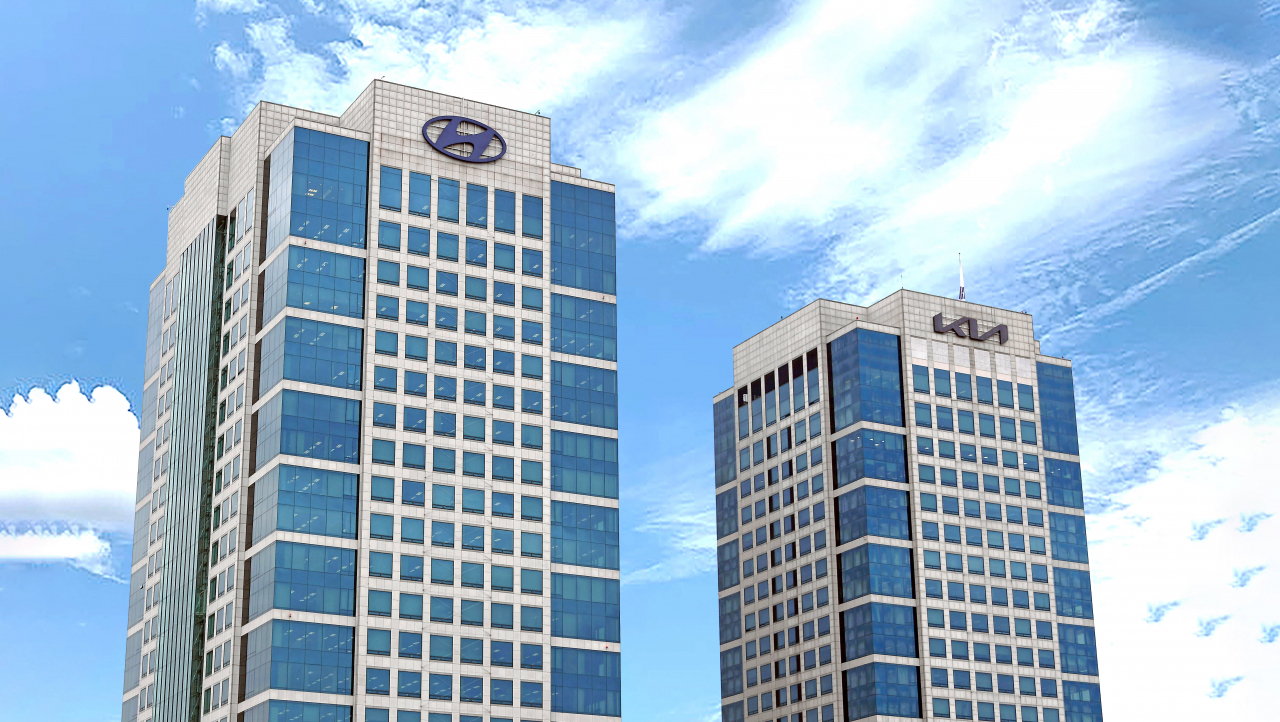Industry steps up lobbying as Korea eyes ways around US inflation act
By Choi Si-youngPublished : Nov. 17, 2022 - 18:13

South Korea’s major business groups said Thursday they had asked US lawmakers and Cabinet members of the Joe Biden administration to grant Korea a three-year extension to the US Inflation Reduction Act so that Korean automakers can keep receiving electric vehicle incentives there.
The law, effective since Aug. 16, is leaving out Hyundai Motor and its affiliate Kia from federal tax credits since they do not make their electric vehicles in North America. Rules that go in effect on Jan. 1 next year also require at least 40 percent of the monetary value of critical minerals in the battery to come from the US or a free trade partner to qualify for the tax credits. The rules tighten to 80 percent in 2027.
A week earlier, Korean battery makers -- LG Energy Solution, SK On and Samsung SDI -- urged the US Internal Revenue Service to push back the timeline, as part of public input the IRS and Treasury Department have sought since last month.
The petition seeking the grace period represents the latest efforts by Korean businesses to put in place a stopgap measure until Hyundai starts EV production in the US as early as 2025, three years from now. The automaker expects to produce at least 300,000 vehicles annually at a Georgia plant, its second overseas EV factory after Indonesia, where production began in March this year. The annual capacity there runs up to 250,000 units, according to the company.
“The Inflation Reduction Act may violate international trade norms and the Korea-US free trade agreement,” the Korean Chamber of Commerce and Industry, which led the petition, said in a statement in a repeat of reasoning the Korean government has used to pressure US authorities to ease the rules.
The rules are neither in line with the spirit of a “stronger mutual economic cooperation” the two allies are increasingly seeking, the KCCI noted, adding Korean businesses have been at the forefront backing the efforts on expanding their economic ties.
“Not only did we throw support behind the Indo-Pacific Economic Framework but companies like Samsung Electronics and Hyundai Motor have made investments in the US contributing to job growth and community development,” the lobby group stressed, citing the coalition Biden launched in May largely to deepen American engagement to the region while putting checks on China’s growing presence.
Lee Ho-guen, a professor of automotive engineering at Daeduk University, said the US might offer Korea something “commensurate with a three-year grace period,” though he noted it was still too early to be definitive.
“The free trade agreement, which bans discriminatory trade practices, is ‘the thing’ standing in the way for the US and I think, with reservation to some extent, the US too wants to avoid walking into the trap. Congress had been a bit divided anyway when it passed the bill, so yeah, a bit of optimism there,” Lee said.
Still some experts point to a wider appeal they say US President Biden is committed to making with the EV tax credit rules so as to put American companies at a clear advantage over Chinese rivals. The intensifying tech rivalry makes it harder for the US to back down, they say.








![[Kim Seong-kon] Democracy and the future of South Korea](http://res.heraldm.com/phpwas/restmb_idxmake.php?idx=644&simg=/content/image/2024/04/16/20240416050802_0.jpg&u=)








![[KH Explains] Hyundai's full hybrid edge to pay off amid slow transition to pure EVs](http://res.heraldm.com/phpwas/restmb_idxmake.php?idx=652&simg=/content/image/2024/04/18/20240418050645_0.jpg&u=20240418181020)

![[Today’s K-pop] Zico drops snippet of collaboration with Jennie](http://res.heraldm.com/phpwas/restmb_idxmake.php?idx=642&simg=/content/image/2024/04/18/20240418050702_0.jpg&u=)